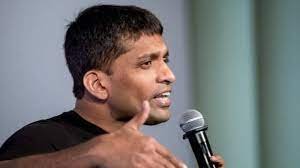
BYJU’S founder and CEO Byju Raveendran has responded to mounting criticism over the company’s alleged toxic work culture, stating that such behavior was limited to a small group of individuals and had been blown out of proportion by social media. In an interview with ANI, Raveendran defended the edtech firm’s practices while acknowledging early missteps and promising a strong comeback.
“We have made mistakes, but all of that was in the initial years,” Raveendran said, referencing accusations that sales staff were pressured to aggressively pitch learning packages to students and parents. “We had 15,000 salespeople at the peak— even if 1% of them sell aggressively, that’s still a small percentage. We had 6 million students but complaints are in the thousands. On social media, things get blown out of proportion.”
He emphasized that BYJU’S had since implemented “guardrails” to prevent such behavior and suggested that the negative perception was driven more by anecdotal reports than widespread misconduct.
A Promise to Return
Raveendran, whose company once held a valuation of $22 billion, admitted that the dramatic downturn had deeply affected him personally. However, he insisted that he was committed to rebuilding.
“I’m not giving up. The moment we come back in control— and 100% it will happen— we will rebuild. Sometimes it’s a blessing in disguise,” he said, referring to the recent turmoil as a catalyst for “post-traumatic growth” rather than defeat.
Financial Missteps and Lessons Learned
The BYJU’S founder also acknowledged that the company’s decision to raise a ₹1 billion term loan, despite having viable equity options, was a strategic mistake. “We shouldn’t have taken it when we had enough equity options,” he said.
The edtech unicorn has faced an array of challenges over the past year, including financial instability, regulatory scrutiny, and ongoing legal battles. Once considered a trailblazer in India’s online education boom, BYJU’S has seen its fortunes decline rapidly as concerns over its financial practices and workplace culture have come to the forefront.
Despite the mounting obstacles, Raveendran remains optimistic. “For those who are mission-driven, we will use this to create post-traumatic growth,” he said, signaling his determination to revive the company’s fortunes and reputation.
Sources By Agencies
 Digital Scoop India Official Platform of Digital Scoop India Featuring Latest & Best News #Articles #Bytes #Entertainment #DigitalScoopMagazine
Digital Scoop India Official Platform of Digital Scoop India Featuring Latest & Best News #Articles #Bytes #Entertainment #DigitalScoopMagazine



